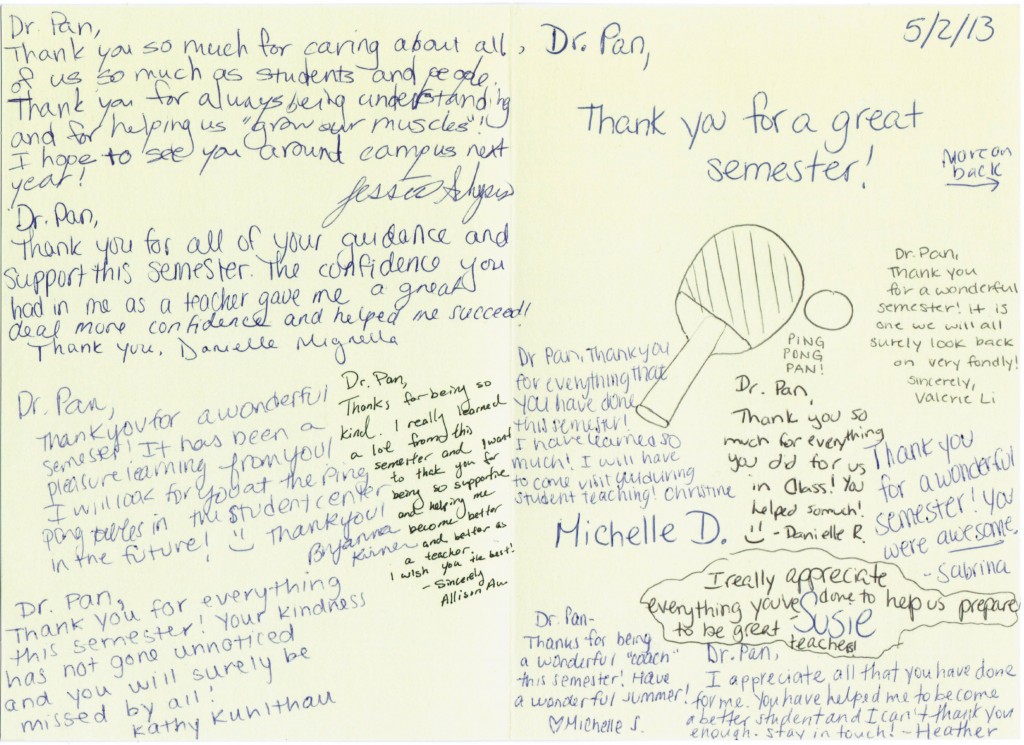As the semester is drawing to a closure, we are starting to plan for the new semester. For this coming fall semester, I’ll be working with a group of Internship I students. We will spend first several meetings on campus to establish a needed foundation for lesson planning, teaching, class management, etc. and then the field practicum will begin. Students will spend three days per week in a designated school, working as pairs with each cooperating teacher. For the past ten years, I have been working with Robbins/ Robbins Annex Elementary teachers closely. Such a cooperation is mutually beneficial.
However, we are facing some forms of uncertainty. The current principal at Robbins is about to retire. I have to report which school site I will be using for the Internship I class. Without the confirmation from the new principal, I cannot convince the student teaching office that our returning to Robbins this fall is a done deal. I was alerted by the student teaching office that the new principal might not want to host our program. In addition, I was informed that the new superintendent of the Trenton School District would really want TCNJ to cycle schools, instead of over taxing one school by using it over and over again.
I can understand where the superintendent stands — TCNJ will be serving the school district and make it look good. However, from the perspective of developing future teachers, I don’t think that’s a good idea. I honestly believe we will disservice our students by randomly placing them in random urban schools. Not all urban school teachers are ready to interact with our program and students; and not all urban school teachers can facilitate good practice for our students to learn and grow. I have heard of many horror stories and disastrous experiences. I have personally witnessed some urban school teachers behaving unprofessionally, using foul language, verbally abusing students, refusing to work with student teachers, providing bad teaching models, and confining our student teachers’ practicum activities. I do not have faith in any random urban school without close encounter. I don’t want to be biased; I simply like to be cautious for the sake our students.
I would prefer to work with teachers at Robbins. It takes time to build good working relationship and understanding. The teachers at Robbins that I have worked with are all very dedicated and sincere. They have been very accommodating and nurturing to our students. In my final class today, my students unanimously praised their cooperating teachers and expressed their gratitude about such an amazing urban school placement. I strongly believe it is to OUR students’ best interest to use Robbins again, if possible. Besides, I realize that most teachers in this school are eager to have us back, rather than feeling been taxed. However, I would not oppose the option of going to a different school in Trenton or other city if the new principal at Robbins refuses to host our program.
At the end of today’s class, my students presented me a precious Thank-You card with everybody’s message (as below). I was surprised and extremely appreciative of their kind gestures. I know they appreciated my effort throughout this semester. They made my day today. I am going to continue working, with my students’ best interest in my mind.


